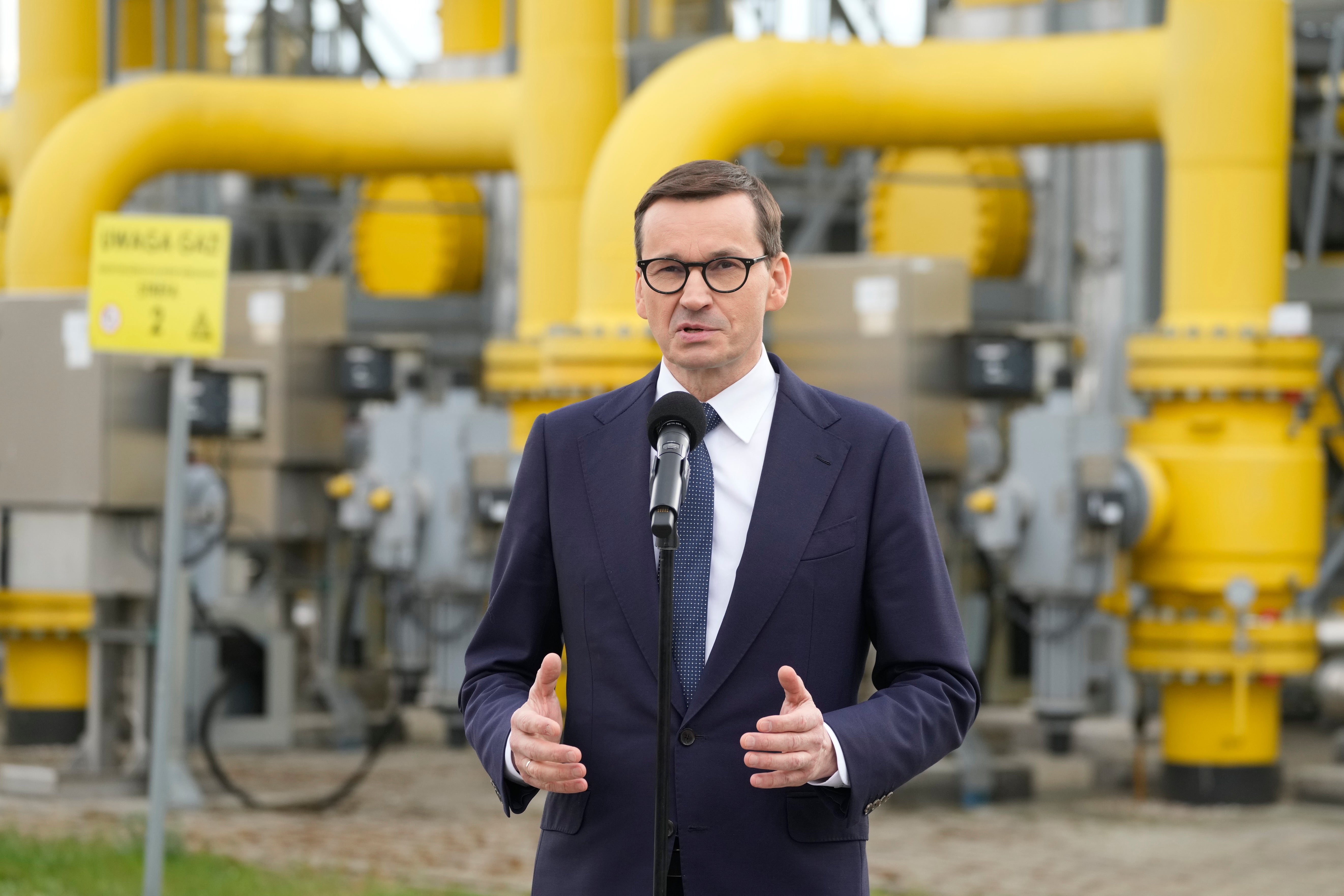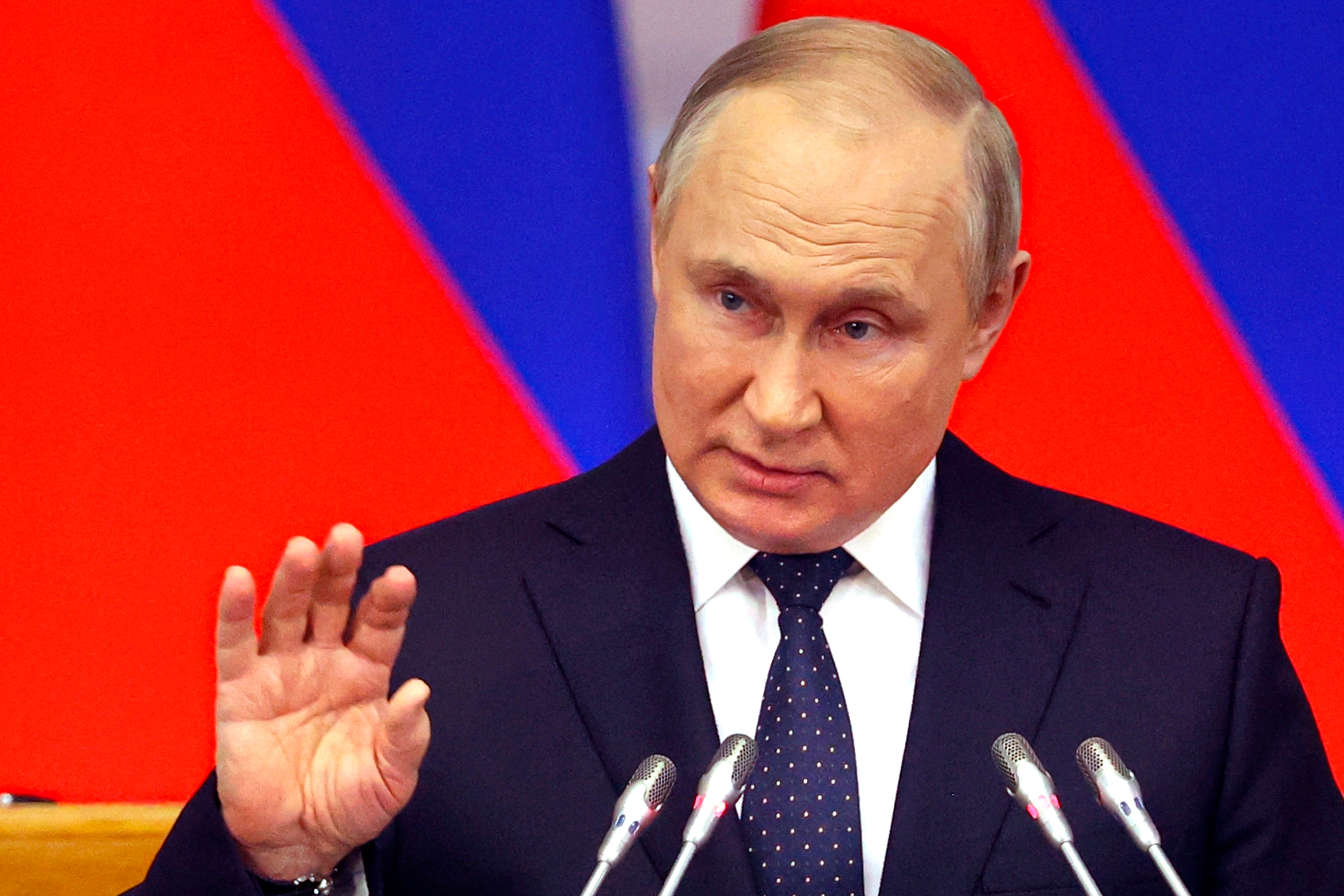Energy experts fear Poland will turn to ‘dirty coal’ after Russia cuts off gas supplies
Uncertainty surrounds energy security in Poland and Bulgaria after Russia cut off gas supplies
Your support helps us to tell the story
From reproductive rights to climate change to Big Tech, The Independent is on the ground when the story is developing. Whether it's investigating the financials of Elon Musk's pro-Trump PAC or producing our latest documentary, 'The A Word', which shines a light on the American women fighting for reproductive rights, we know how important it is to parse out the facts from the messaging.
At such a critical moment in US history, we need reporters on the ground. Your donation allows us to keep sending journalists to speak to both sides of the story.
The Independent is trusted by Americans across the entire political spectrum. And unlike many other quality news outlets, we choose not to lock Americans out of our reporting and analysis with paywalls. We believe quality journalism should be available to everyone, paid for by those who can afford it.
Your support makes all the difference.Russian energy giant Gazprom has completely cut off gas supplies to Poland and Bulgaria.
Both countries are apparently being punished for refusing Russia’s demand that they pay for their gas in roubles and their support of Ukraine.
The halt of natural gas transfers is the latest escalation of tensions between Russia and the west amid the war in Ukraine. Moscow has suggested it could cease supplying gas to other European customers.
The move has sparked speculation that Poland, Bulgaria and other European nations will invest in renewable technology to reduce reliance on imported energy.
Dr Alexander Mihailov, associate professor in economics at the University of Reading, said Moscow’s actions would act as a “catalyst” for renewables but European allies would pick up the slack on fossil fuel supply initially.

He said: “I don’t think anything will change in the short-term, it is premature to talk about a shift to renewable energy.
“The EU will be trying to mitigate the consequences of the switch away from Russian oil, but if the urgent situation isn’t resolved there could be a return to fossil fuels that are polluting.”
Climate scientist Dr Ella Gilbert, a climate modeller for the British Antarctic Survey, said the move away from Russian fossil fuels was an opportunity for greater uptake of renewables, but also fears that countries like Poland will turn to dirtier fossil fuels such as coal or shale gas if they struggle to keep the lights on.

She said: “This crisis highlights that instead of being the dependable energy source it is always billed as, gas is subject to geopolitical volatility.
“Producing energy from sources that are unaffected by world events like solar, wind, water and geothermal is a much more reliable and sustainable alternative.
“To avoid the worst consequences of climate change, including coastline-changing amounts of sea level rise from ice loss from the polar regions, extreme weather conditions, heatwaves, flooding, wildfires and more, we must dramatically upscale our ambition when it comes to renewable energy sources.
“While we can’t go cold turkey on fossil fuels overnight, we should seize this as an opportunity to rapidly move away from dirty oil, coal and gas, and towards greener alternatives.”

Author and climate campaigner Professor Mark Maslin said: “The EU have already announced they will triple the amount of renewable energy capacity developed in the next 10 years in response to energy security.
“However, Poland may revert back to dirty coal as they have huge reserves – which will cause a spike in their carbon emissions.”
Jonathan Reynolds, Labour’s shadow business secretary, said there was “complacency” from the government on energy security and a “sprint” to renewable sources was needed.
He said Poland and Bulgaria deserved Britain’s “full solidarity” after Russia turned off the taps.
Mr Reynolds said Labour’s policy of a windfall tax on oil and gas companies would help households with their energy bills.
Discussing the European gas supply situation, he added: “We should show full solidarity with our European friends and allies who have been facing this kind of aggression from Russia.
“And we’ve known that the Russians use energy policy as a tool of that aggression.
“What we need to see is, first of all, a shake-up of some of the complacency that we see from the Conservative government.”

Join our commenting forum
Join thought-provoking conversations, follow other Independent readers and see their replies
Comments